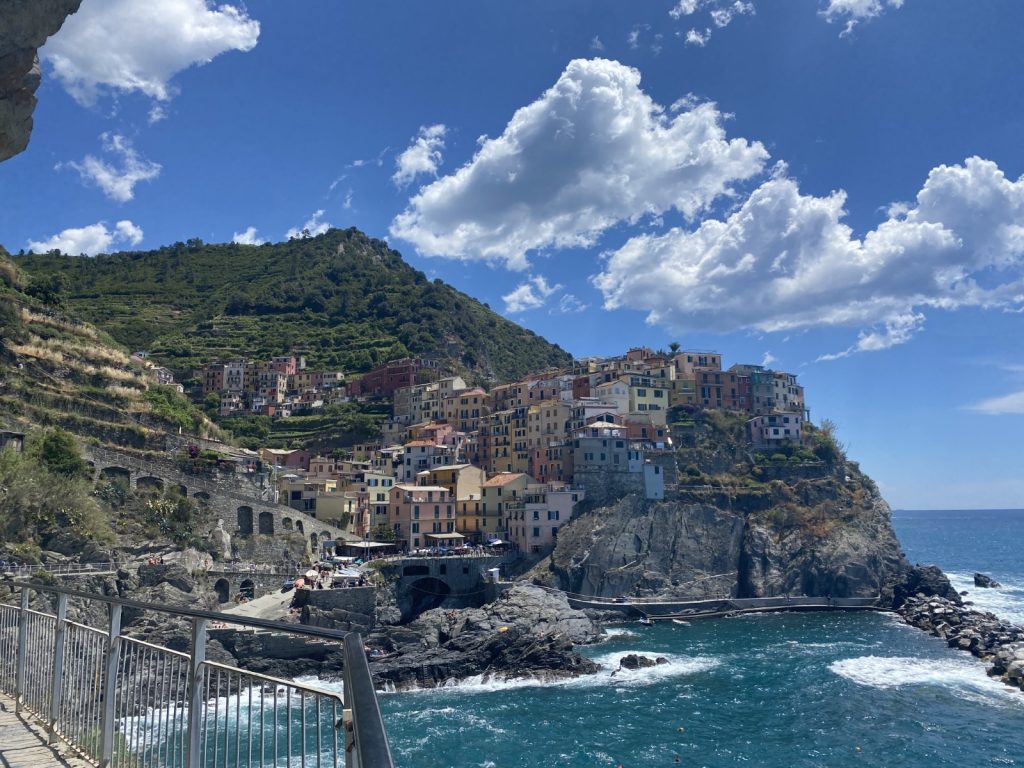Vittorio Parravano | Guest writer
My grandmother died at the age of 88.
Born and raised in Rome, she spoke broken Spanish which got worse as she grew older. Luckily, her sense of humor was never lost in translation. Her love wasn’t either.
As a child, the smell of hand-made dough adorned my grandmother’s home every week before lunch. Eagerly, I looked forward to eating her delicious gnocchi while watching cartoons on TV.
This summer, I visited Italy in her honor through FIU’s study abroad program, “Food, Economy and Society on the Italian Riviera,” centered around the city of Genoa in the Liguria region.
Professor Douglas Kincaid described the city of Genoa as a medieval time capsule riddled with delicious food. I didn’t need much more convincing.
The program was full of savory meals, breathtaking excursions and amazing professors.
But at the same time, the awkwardness that came with spending over a month in another country felt uncomfortable at times.
I wish I could thank my grandmother for warning me that Italians take offense if you don’t finish the food. My classmates were not as lucky — they had to learn the hard way.
My time in Genoa taught me that the pride attached to Italian cuisine comes from a long history of trial and error. Traditional Ligurian food is very rustic; understanding this goes a long way in accepting their culture.
In fact, one of the more traditionally popular dishes in Genoa is tripe — a meat dish made from the edible part of a cow’s stomach lining. With that being said, some of my classmates had a hard time getting used to their new diet. But for me, every meal was an opportunity to expand my taste palette.
Regardless, the authenticity of every meal was unmatched. They all tasted homemade.
As a group, we ate courses at restaurants. During group meals, Italian waiters would come by often to check our progress. Sometimes, they had to withdraw untouched plates from our table with animosity — it was very painful to watch.
The language barrier was particularly frustrating. Despite bearing the name of Italian royalty, I felt lost when striking up conversations with strangers. I couldn’t even compliment a woman on her appearance.
Thankfully, our tour guides were well-versed in English, which eased the learning process. Still, it was common for us to receive cold looks in public when speaking English. These same looks made me eager to immerse myself locally for a sense of belonging.
My saving grace was the language class taught by Professor Alessandro Cavaglieri, a Genoa native. We met with him three times a week at a convent adjacent to FIU, where he showed us the inner workings of the city.
Likewise, Professor Fernando Fasce taught us the tumultuous history of Italian politics. He also guided us through historical tours of places like the Museo Nazionale di Risorgimento in Turin and the Ansaldo Energia archives in the Genoese industrial district.
We also met the authors of our class textbooks: Tom Muller, a journalist and olive oil specialist as well as Simone Cinotto, a professor at the University of Gastroeconomics.
One of the highlights of the trip was the time we visited Cinque Terre. The day started with an hour-long hike from Riomaggiore to Monterosso via the Blue Trail. The physical strain was worth enduring for the astounding views of the coastline.
After exploring Monterosso, we took a bus to Vernazza and Manarola where we got a chance to sit down for lunch. The day culminated in a private wine tasting session at the Cantina Cinque Terre in La Spezia where we got to taste the world-famous Sciacchetrà dessert wine.

But my favorite part of the program was visiting the Ligurian Coast.
Halfway through the program, we rode on a ferry that took us from Santa Margherita, to Portofino, then to San Fruttuoso and Camogli. A small group of us decided to bathe in the energizing water. It was a pleasant change of pace from the crowded city of Genoa.
The overall experience was insightful and well-rounded. We had many opportunities to explore Genoa during our leisure time and we even received a list of recommendations from our professors.
Every major destination was within walking distance and every block was riddled with boutiques, bars and restaurants.
Experiencing Italian culture made me feel strangely nostalgic, despite never having visited the country before.
DISCLAIMER:
The opinions presented within this page do not represent the views of the PantherNOW Editorial Board. These views are separate from editorials and reflect individual perspectives of contributing writers and/or members of the University community.






Be the first to comment on "Heart Home: exploring my roots through FIU’s study abroad "